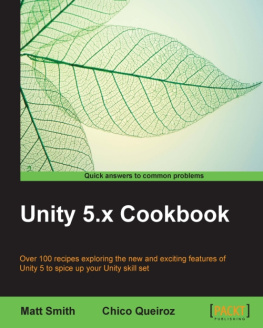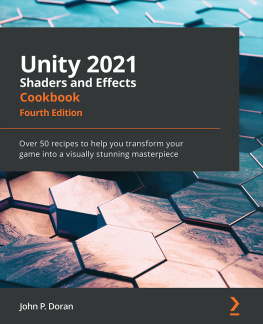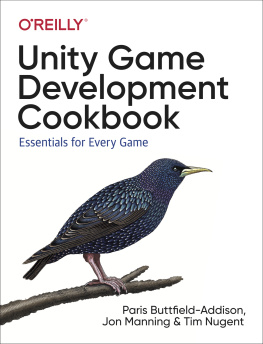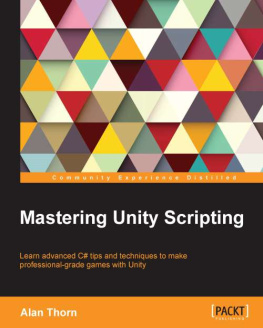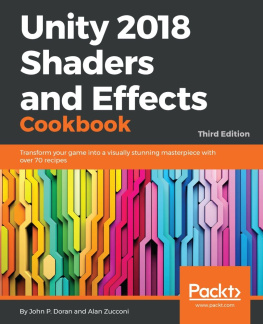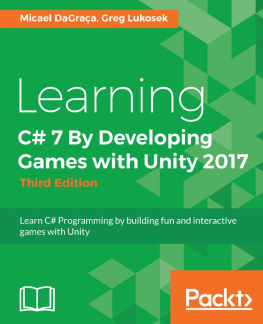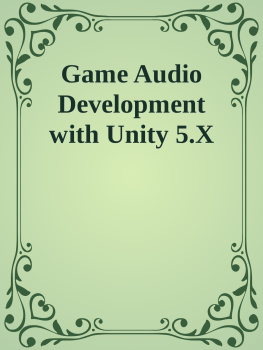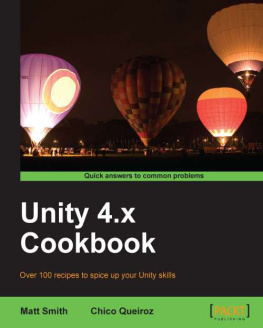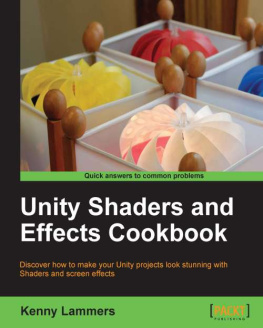Not so long ago developing professional quality games meant licensing an expensive game engine (or writing one yourself) and hiring a small army of developers to use it. Today, game engines like Unity have democratized game development to the point where you can simply download the tools and start making the game of your dreams right away.
Well... kinda.
Having a powerful game creation tool is not the same thing as having the technical knowledge and skills to use it effectively. I've been developing games and game tools professionally for over 13 years. When I took the plunge into learning Unity development, I quickly found that there was a huge amount of online documentation, tutorials and forum answers available for Unity developers. This makes getting started with Unity development very easy. It's fantastic that this information is out there, but it can also be quite fragmented. A lot of the time the piece of the puzzle you are missing is buried 40 minutes into an hour-long tutorial video or on the 15th page of a long forum thread. The hours you spend looking for these nuggets of wisdom are time that would be better spent working on your game.
The beauty of the Unity 5.x Cookbook is that Matt and Chico have done the tedious legwork of finding this information for you and distilled it into a neat collection of easy to follow step-by-step recipes (and provided the scripts and complete working projects for you to download). Unity development covers a vast range of topics, so the authors have sensibly focused on those areas that almost all developers will encounter. If you're serious about developing great games and tools with Unity, then you'll need to master just the kinds of topics you'll find in this book.
Getting started with Unity development is free and easy. When you're ready to take your skills to the next level, this book is an easy and effective way to do it. It covers a great deal in its hundreds of pages, and if you can master even half of what's here you'll be well on the way to becoming a great Unity developer.
About the Authors
Matt Smith is a computing academic from Dublin, Ireland. In 1983 Matt started computer programming (on a ZX80) and for his 'O-level' computing certificate (aged 16) he submitted 2 games for his programming project work. In 1985 Matt wrote the lyrics, and was a member of the band that played (and sang, sorry about that by the way) the music on the B-side of the audio cassette carrying the computer game Confuzion (https://en.wikipedia.org/wiki/Confuzion).
On a succession of scholarships he managed to spend almost 10 years as a full time student, gaining BA (Hons), then MSc then PhD degrees in computing and artificial intelligence. He then became a full-time lecturer. Having previously lectured full-time at Winchester University and London's Middlesex University, since 2002 he has been at the Institute of Technology Blanchardstown in Dublin (http://www.itb.ie/) where he is he is now senior lecturer in computing.
Some of his previous IrishFrench student team games can be found and played at http://www.saintgermes.com (thanks for continuing to host these Guillem!). Matt was one of the two technical experts for a recent multimedia European project for language and cultural student work mobility (http://www.vocalproject.eu).
He studies and teaches Taekwon-Do with his two children, having been awarded his first degree black belt in 2015 (he also runs his club's website at http://www.maynoothtkd.com/). He is trying to learn Irish, so he will understand the report cards from his children's Irish-speaking school. In occasional moments of free time he also tries to get better at playing the piano and classical guitar.
Matt is a documentation author for the Fungus open source interactive storytelling plugin for Unity (http://www.fungusgames.com). Matt also maintains a step-by-step open source introduction to Unity 2D and 3D game programming on his public Github pages (see https://www.github.com/dr-matt-smith/gravity-guy2D).
Matt's previous publications include a chapter in Serious Games and Edutainment Applications ( Springer 2011 , ISBN: 1447121600), and contributions and editing of several music education and artificial intelligence books.
Thanks to my family for all their support. Thanks also to my students, who continue to challenge and surprise me with their enthusiasm for multimedia and game development. Thanks also to the editors, reviewers, readers and students who provided feedback and suggestions on how to improve the first edition and drafts of this new edition.
A special mention to my parents in England, and my wife's Aunty Maureen in County Mayo here's another book for the family-authored bookshelves.
Finally, I would like to dedicate this book to my wife Sinad and my children Charlotte and Luke.
Chico Queiroz is a digital media designer from Rio de Janeiro, Brazil. Chico started his career back in 2000, soon after graduating in Communications/Advertising (PUC-Rio), working with advergames and webgames using Flash and Director at LocZ Multimedia, where he contributed to the design and development of games for clients, such as Volkswagen and Parmalat, along with some independent titles.
Chico has a master's degree in Digital Game Design (University for the Creative Arts, UK). His final project was exhibited at events and festivals such as London Serious Games Showcase and FILE . Chico has also published articles for academic conferences and websites such as http://www.gameology.org, http://www.gamasutra.com, and http://www.gamecareerguide.com.

